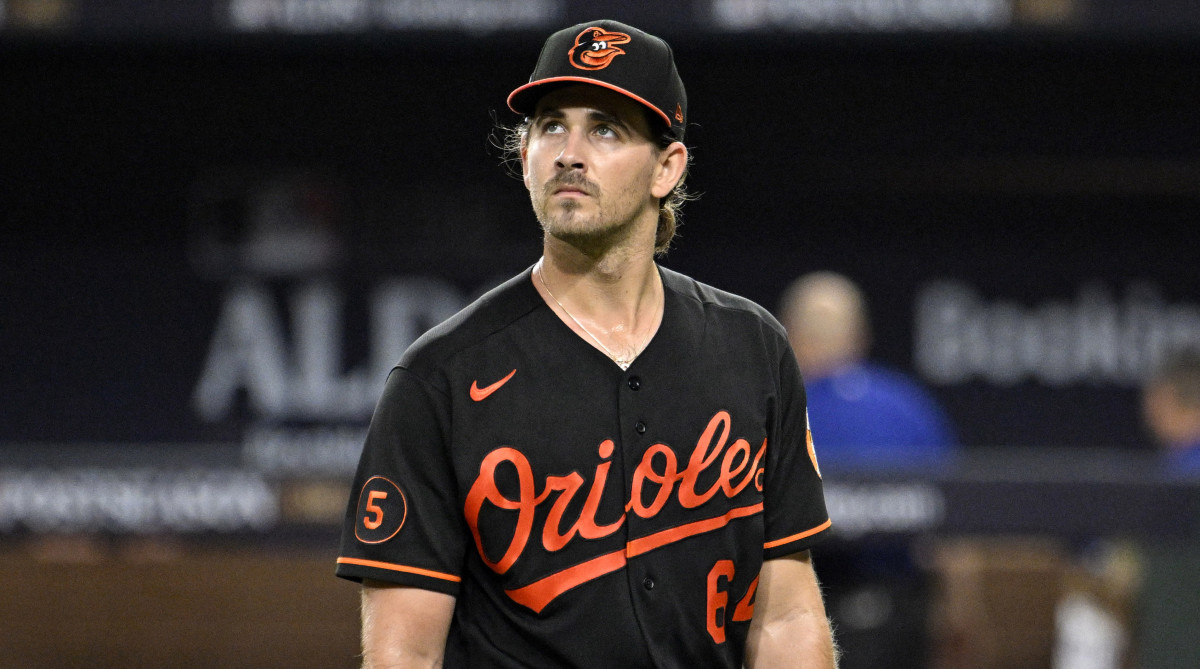Orioles’ Underdog Story Comes Crashing Down in Texas

The Orioles were not swept in a series all year. This was a key part of their magical season, Baltimore’s winningest campaign in decades, an especially sweet reward after a grueling rebuild. On the strength of a dynamic, vibrant youth movement, they secured the best record in the American League.
But that all came to an end in a hurry in October. In the Orioles’ first postseason appearance in seven years, they failed to win a single game, enduring a sweep at the hands of the Rangers in the ALDS.
They lost Tuesday’s deciding Game 3 by a score of 7–1. For the second time in this series, Baltimore’s starter was unable to make it out of the second inning, with Dean Kremer getting tagged for six runs in his brief outing. The offense couldn’t do much of anything to get out of that hole: The Orioles put just one runner in scoring position in the first seven innings against Rangers starter Nathan Eovaldi. It was a quiet ending to a joyous romp of a season.

“We have a lot of guys who have never been to the postseason before. So this hurts, and it’s O.K. to hurt,” Orioles manager Brandon Hyde told reporters afterward. “It’s O.K. to have this kind of fuel your fire in the offseason. It’s going to take a while for us to get over this a little bit. But I think our guys will come in hunting and hungry in spring training. The guys coming back, especially the young guys, know what this feels like, know what it tastes like, and it sucks. If they did soak it in a little bit, they’re going to be better for it down the road.”
The series loss was an upset: a 1-seed falling to a 5-seed. But it’s not as surprising as it may look on the playoff bracket. Baltimore was largely young and inexperienced, as Hyde said. The Rangers finished the regular season with a better run differential than the Orioles. They had a stronger offense (a 114 team OPS+ compared to 107) and a roughly equivalent pitching staff (a 105 team ERA+ compared to 106). The Orioles had the AL’s best record. But the Rangers were arguably just as strong a team.
Still, the Orioles will have plenty to analyze from their disappointing playoff performance. Their lack of pitching depth proved damning—both in terms of a thin rotation and an inability to cover key middle relief innings when needed. It’s true that injuries played a role there. But that’s a standard part of playoff life for almost every club, and the Orioles had precious little room to absorb those blows, leaving them adrift in October.
But this young core should be in place for years to come in Baltimore. They outperformed their expectations this season. That means a higher bar—and, ideally, more investment and development—for next year.
“We were supposed to win 76 games,” Hyde said. “Won 101, won the American League East. Really proud of our group. They defied all the odds. Nobody gave us a chance. These guys played their butts off for six months. We just didn’t play well for these last three, unfortunately. And it’s definitely a successful season, and these guys are going to be really good going forward.”
